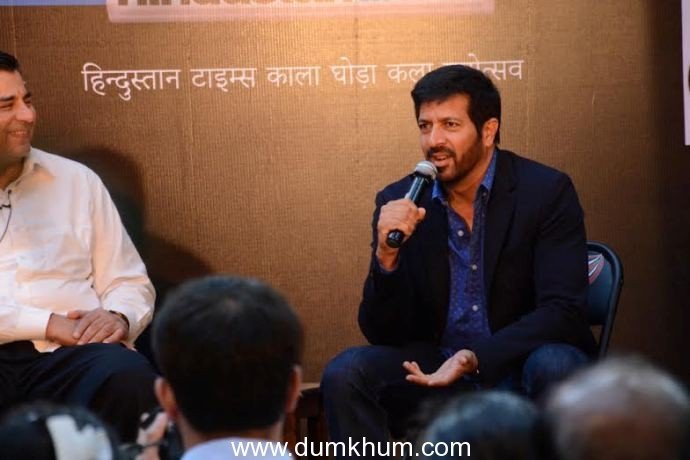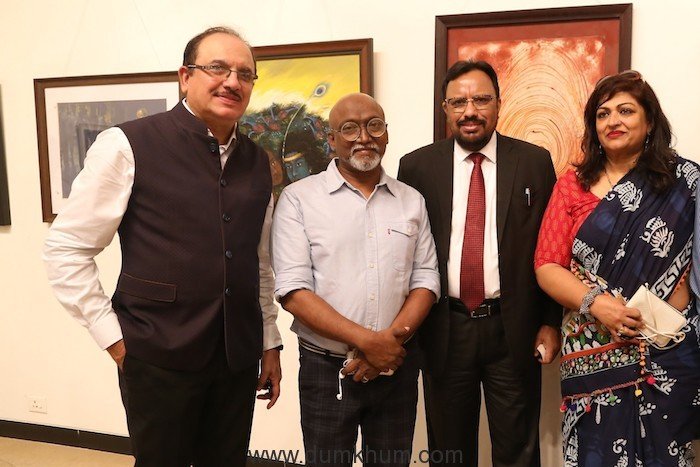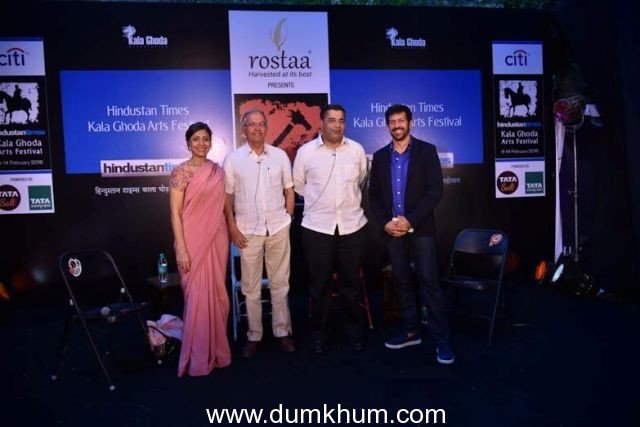Kabir Khan shares some amazing insights at a panel discussion at KGAF

What: Actvities of Day three of KGAF 2016 – When: 8th feb Where: Kala Ghoda Time: 10 am- 10 pm
Day 3 saw several interesting events and discussions at the coveted Kala Ghoda Arts Festival.A highlight was a panel discussion of the literature section titled “Renegotiating our Neighbourhood: The Modi doctorine” – in assosciation with Gateway House that took place at DSL Garden from 5.00-6.00pm. It covered a discussion on India and Pakistan in a new light with Ambassador TCA Raghavan, Praveen Swami & Kabir Khan moderated by Manjeet Kripalani.Kabir Khan has been a war documentary filmmaker and has recently delivered the blockbuster hit, ‘Bajrangi Bhaijaan,’ which was critically appreciated as well. Speaking on the discussion and the power of cinema, the enigmatic director affirmed that, ‘Films are able to set borders. We don’t need visas to block borders. Everyone’s going to watch us. Films can make a difference. There’s always been a soft spot India has had because of Bollywood . In nov 2001 I was making a documentary in Afghanistan. But there was bombing so we were not getting permission to enter. We were stuck. We made attempts to cross over. We tried everything and couldn’t get through. On the last day everyone gave up but me and my friend Rajan Kapoor went on the air field and we bribed the helicopter guy and he took us. We jumped from the chopper and we saw this lone figure and he came walking towards us saying something angrily. We just said Hindustan and the guy smiles singing a Hindi song. Since then I’ve tried to strengthen that. Modi doctrine is not something that is radically different. If it leads to cross border cultural exchange then it’s good, if we are able to compartmentalise and see each country having their own agenda it’ll be beneficial. One of the reasons why we can’t get revenue is due to piracy. Piracy is a curative sector because we can’t legally show movies to Pakistan. We can’t get our films to them and that’s why the piracy industry thrives. If the business of cinema could get to SAARC we could get large revenues. My father was a professor and our conversation used to be about international politics. I travelled to more than 60 countries doing soft features on international affairs. When I got the opportunity to make films it was a personal struggle. Kabul express was based on my experiences in Afghanistan. It was based on personal interactions I had with Taliban. China has become a buzz word in the film industry. China has 25000 screens and are aiming for 50000. If you want world wide revenue to hit you can’t do it without China. We trying to work for a script that will work with China and Mumbai. We are trying to crack this.” The director’s words were met with applause and praise!KGAF day 3 also saw great events in terms of dance.Images taken by Shirresh Karral











